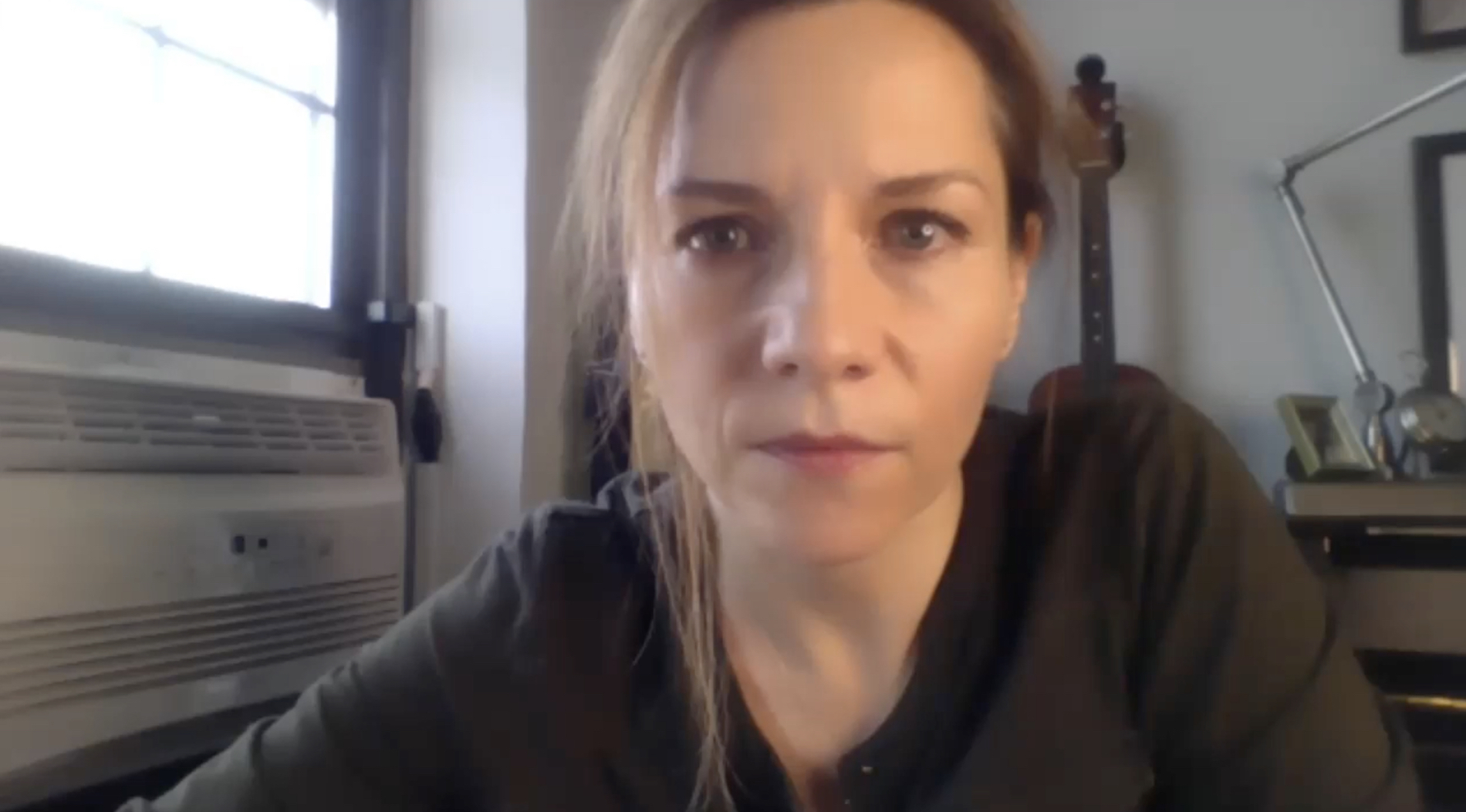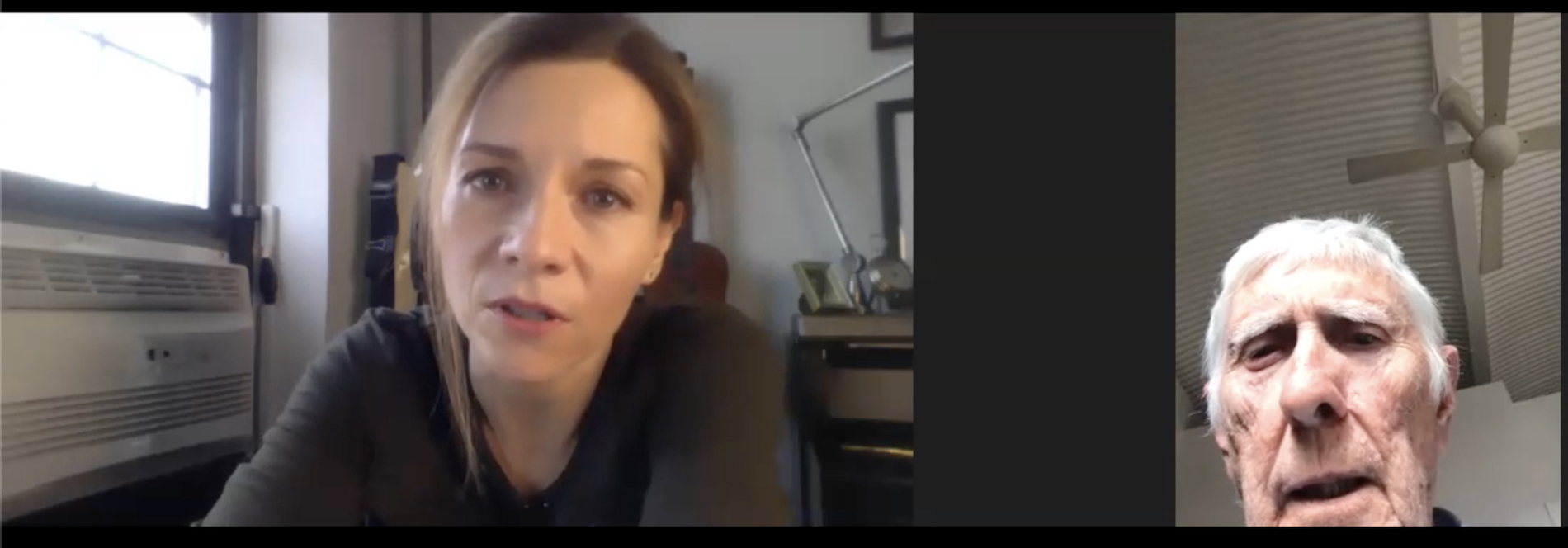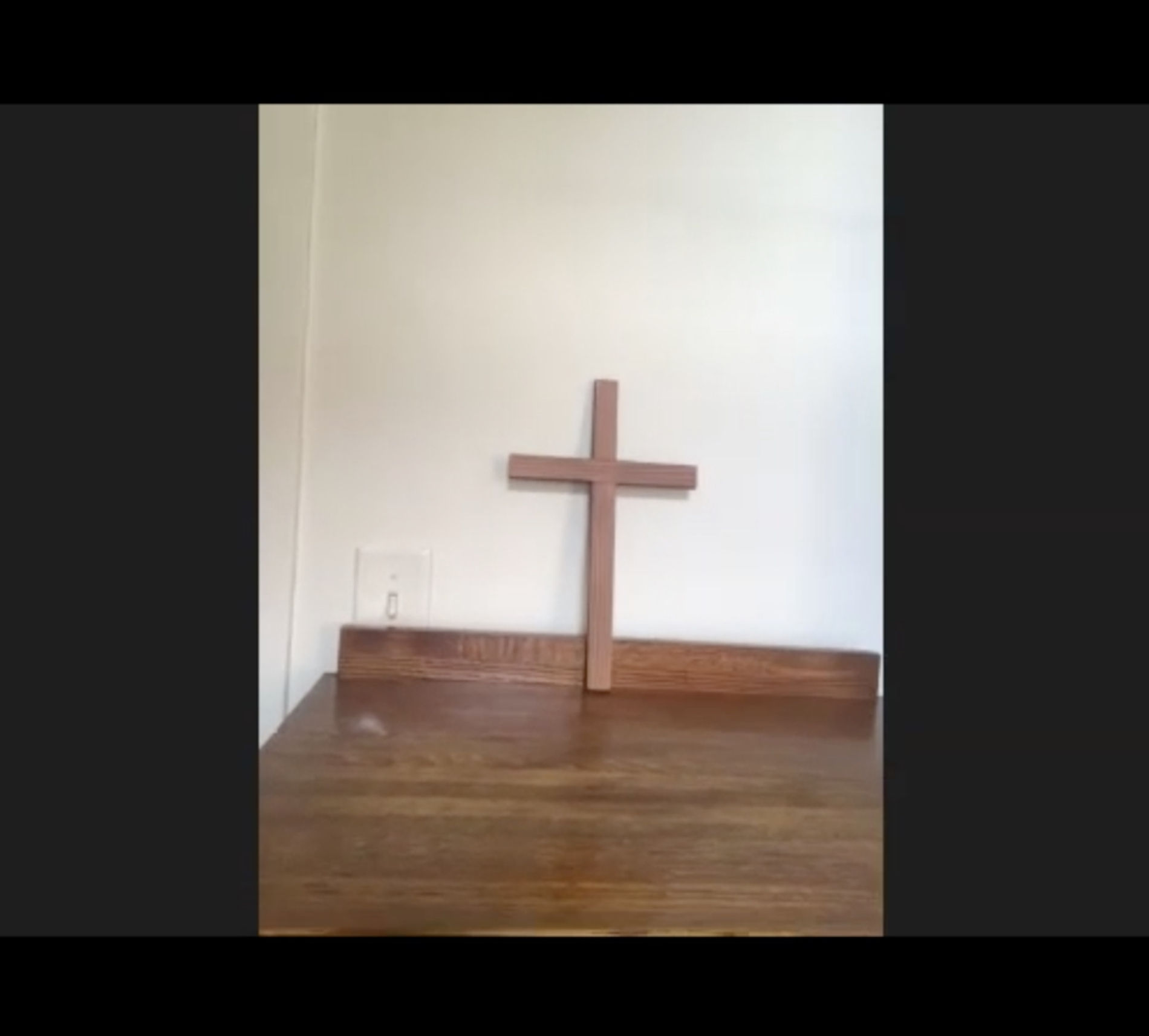
Case Study: I See You Now
Tamara Gadomski about the making of her short film, created during lockdown in spring 2020.
Geplaatst op 21 augustus 2020
Tamara Gadomski about the making of her short film, created during lockdown in spring 2020.
Geplaatst op 21 augustus 2020Tara Gadomski is a Sundance Knight Fellow. She is an actor, writer, director and radio producer. She works in both the US and UK, creating film, theatre and audio projects, for people to feel less-alone when they are beat up by inequalities and false-societal norms.
"There has been a lot of focus, especially in the USA, on how to be 'productive' during the Covid-19 lockdown. I think this is dangerous to our mental health."
"There has been a lot of focus, especially in the USA, on how to be 'productive' during the Covid-19 lockdown. I think this is dangerous to our mental health. I happen to work through my anxieties by creating things. But if you have a different way that feels good, you're doing it right! Let's give ourselves a break. So I write this, not to brag about what I 'got done' but just to give some tips on remote filmmaking, for these unusual times."
"I regularly look at BBC Writers Room Opportunities for places to submit my work. In March, at the start of the lockdown, the BBC posted a call-out for short scripts that could be filmed entirely via video call."
"I had been thinking about this concept of rejection for a while, and I knew it could work on a video-call film. I quickly wrote a first draft of the film and revised it until I was happy with the ten pages, featuring two characters in three acts. It only took a couple of days. I attribute this to the well-known concept that restrictions can make writing easier. I submitted it to the BBC scheme."
"'No Thanks!' The script was rejected, but at least they let me down easily: 'We received 6,803 scripts... on this occasion, your script did not progress further in the process'. (Yes, 6,803 scripts!!). The most difficult step then: I decided to make the film anyway."

"There are many different video call platforms. At the time (April 2020) I decided that Zoom had the most effective way to record a video call. (Though all the other platforms are now improving.)"
"Because I'm an actor myself, I know a lot of others! So I was able to call Amy Russ and Mike Callahan, who are perfect in the roles of Jess and Dad. I want to encourage you, even if you don't know a lot of working actors, to find contacts via websites or IMDB Pro, and send a note. Trust me, actors LOVE working and we MISS it so much right now!"
"I got the film approved under a SAG-AFTRA Short Project Agreement. This is necessary if you are making a film in the USA, with union actors. Filmmakers can be intimidated by the union, but they will work with you to organise your paperwork and get it done right."
"I did a test run. Just like I wouldn't take a brand-new film camera to a set without experimenting first, I wanted to make sure I got Zoom right. In the following I will talk a bit more about the specs I decided to use (and some I missed!)."
"The Zoom Pro upgrade gave me the ability to host meetings longer than 40 minutes, and a 720p recording capability. But I wish I had upgraded to Zoom Business and recorded in HD 1080p. In My Account-Settings-Meetings- I allowed Cloud recording, so I wouldn't run out of space on my computer. In Settings-Recordings, record 'Gallery View' and 'Speaker View' separately. This gave me the options to cut between shots with just one or both actors on screen. In Settings-Recordings-Audio, record each participant's audio separately. This would have been useful during the edit, but sadly, I missed this step."

"We had a crew of two (me and the AD, Luz Cabrales) so it was easy to coordinate schedules. Because I wanted both actors on screen at the same time, we had to shoot each scene as a full, one-take—almost like a piece of theatre. Though they were in their own homes, I wanted the actors to have breaks, just like on a set. So we scheduled the shoot for just one day, but with the plan to fully log off Zoom after recording each scene, to give the actors time to refresh."
"The shoot day arrived and the Assistant Director and I ran it like a real set, with a slate and commands, even though we were all in separate locations. While recording, the AD and I turned off our cameras and muted our mics, so that only the actors were on screen. We did about three full takes of each act, and wrapped in just three hours."
"I had no budget for this experiment in filmmaking. Because the edit was fairly simple, I decided to cut it myself using my basic Adobe Premiere skills. It's not something I'd do for any other project, as input from other creatives is imperative. As for color, I wanted the film to look like a real video call, so I did not grade it."
"I have worked with the composer and musician Marlaina Donato on my previous film Signs of Aging and we really vibe. I sent her a rough cut of the film, she wrote four gorgeous new songs and recorded herself on piano. If you don't know a composer, I'd recommend finding songs online with Creative Commons licenses."
"I chose to release the film through festivals, submitting via Film Freeway. The film seems to be resonating with people, and we are very grateful for all the lovely feedback. It just proves that when you make something that's truly from the heart, with no expectations, it can touch a lot of people."

Short Film Competition 2
September 12, 18.00-19.30, Online
(c) All visual material is used with the filmmaker's permission.